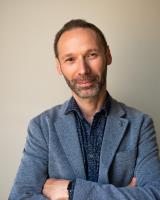
Contract for the future
"You need to have already learned many things to know how to ask what you don't know" [Jean-Jacques Rousseau] - Excerpt from Julie ou La nouvelle Héloïse
Variety in the Faculty of Philosophy and Letters: here you'll encounter philosophy, history, art history, as well as Romance and Germanic languages and literatures. These orientations share common goals: learning to think and argue; assimilating information and structuring it into coherent wholes; interpreting texts, doctrines, works of art, explaining societies through their history.
Student support in small groups and formative assessment, which characterize Namur's pedagogy, enable in-depth work. Tutoring, mentoring and remedial modules also contribute to achieving these objectives. Studying, like conducting research, requires constant effort and the willingness to devote a significant part of one's time to intellectual work. Continuing education is also an important activity of our faculty.
In his book 'Le Capital-Lettres ou les littéraires dans l'entreprise', Alain Etchegoyen inventories the virtues of the 'literary'. Some of these are shared with scientific training: method, rigor, precision, abstraction, analysis, synthesis. But others are the prerogative of the 'literary': awareness of complexity and uncertainty, intellectual openness to highly diversified fields of knowledge and reality, the ability to put data into perspective and question their meaning, mastery of language, not forgetting the cultural content itself.
Life is above all about the unexpected, then adapting with a view to progress. Training the intellect and the heart is an essential basis for success. So come along with your curiosity, your enthusiasm and your determination to make your project a success. We have a journey to make together... as part of your training, research or service project.
I invite you to start the journey, on the website. But also, get in touch: there's no substitute for meeting.
Christophe Flament
Dean